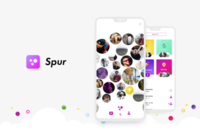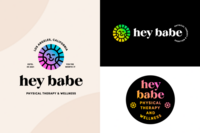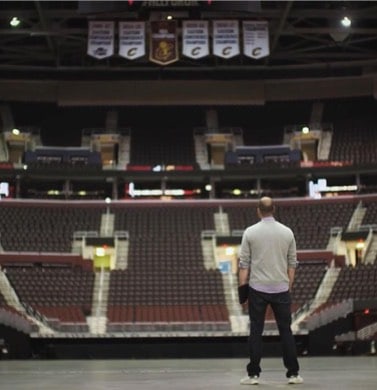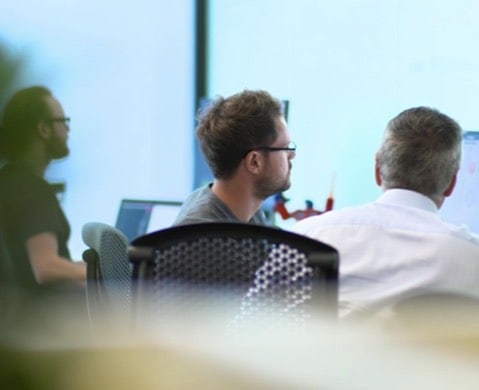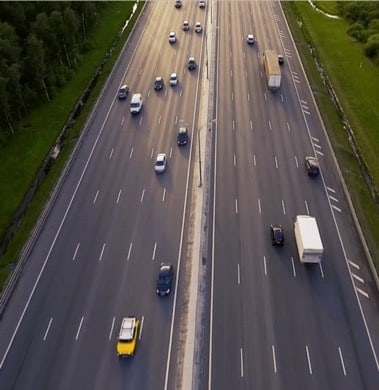Hire Freelance Webflow Designers
Caleb Barclay
Caleb is a seasoned product designer and strategist. He's worked with big brands like GoDaddy, Louis C.K., but also with dozens of startups with big ideas—creating lovable version number 1s. Caleb approaches product design as a practice of creating desirability, usefulness, and usability.
Show MoreDan Baciu
Dan has worked with everyone from early-stage startups in Berlin and San Francisco to global corporations such as Oracle and Samsung. When he starts on a project, he gets involved in every aspect, from research and prototyping to designing and development. Dan focuses on combining powerful visual aesthetics with solid functionality and usability to create delightful experiences that make sense.
Show MoreLinsey Peterson
Linsey has been designing websites, apps, and digital products for over 7+ years for various agencies, startups, and freelance clients. She specializes in branding, UI, and visual design and also has expertise in UX and brand strategy. Linsey has a lot of experience managing and completing projects remotely and is eager to partner with new clients helping them achieve their goals through digital strategy and design.
Show MoreArto Viitanen
Arto is the former Head of Design at Idean, Palo Alto, with 10+ years of UX design experience (and hundreds of projects). He has a versatile background in business, programming, and design, which makes him a good fit for concept creation and MVP projects. His clients praise his efficiency.
Show MoreBruno Silva
Bruno is a senior product designer passionate about creating intuitive, simple, and beautiful designs that delight users. Since 2007, he has worked on a diverse range of projects and teams of all sizes. Bruno brings a strategic approach to every stage of the design project lifecycle, including discovery research, brand identity, prototyping, user testing, user interface design, and user experience.
Show MoreSam Nissinen
Sam is a full-stack designer who's spent the past nine years in production and executive design roles. With extensive experience, he takes full ownership of design projects. Focusing on UX, research, UI, and interactions, he's also very comfortable with copywriting and branding. Having worked with startups and enterprise clients during his career, Sam always keeps the bigger picture in mind when working on a project.
Show MoreMarko Simic
Marko is a dedicated and reliable pixel pusher with ten years of experience in design, specialized in creating simplistic, clean, and intuitive layouts. He's always aiming for self-improvement and keeping up with current design trends and techniques, analyzing why they work and how he can apply them to create functional experiences for end users.
Show MoreAndrei Gurgel
Andrei is a UX/UI designer with over two decades of experience. He has a master's degree in design and is recognized for his work across diverse industries, from finance and health to entertainment. Andrei is also an author, having written Codesigners, a book on co-creation and participation, reflecting his belief in collaborative innovation. His process is dedicated to participative, innovative thinking and is used to lead the process of crafting simple to complex solutions efficiently.
Show MoreCarlos Montoya Brand
Carlos began his career in print design. In 2012 he got amazed by the digital design environment and started educating himself on UI and UX design topics. He's worked as a freelancer for a Canadian company and moved forward to full-time digital product design. Carlos considers himself a good team player and a methodical professional passionate about design.
Show MoreBelinda De Bruyn
Belinda's multidisciplinary approach to design is one of her greatest strengths, as it allows her to bring diverse skills and perspectives to every project. Her focus on designing functional, smart, and aesthetically pleasing designs ensures that her clients receive an outcome that not only looks great but also performs well. Belinda's extensive experience in branding, web design, visual design, and Webflow implementation allows her to take on various projects.
Show MoreLjubomir Bardžić
Ljubomir is a UI/UX designer and an Adobe Certified Expert. He has been working with tech startups for the last ten years, helping them deliver better experiences across desktop, mobile, and web apps. Besides doing client work, Ljubomir also teaches design online. His courses have been attended by over 6,000 students so far.
Show MoreDiscover More Webflow Designers in the Toptal Network
Start Hiring
